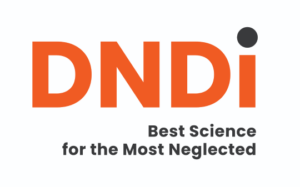Partners
To successfully deliver on our aims we need to partner with a number of organisations who share our vision for:
- discovering new medicines for neglected and other infectious diseases that affect the developing world
- training the next generation of scientists
- engaging the public to support science in fighting poverty and disease.
Watch the video to find out why collaboration is important to successful outcomes.
You can find out more about who we work with and what they do by clicking on the links below.
Medicines for Malaria Venture
WCAIR and MMV partner together across the drug discovery and development pipeline. The DDU provides a screening service for MMV, using our expertise to test compounds from other MMV partners. The DDU have selected and curated compound libraries for MMV and our compound management team provide assay ready screening plates to groups across the world. MMV are funding the DDU malaria team to undertake drug discovery for a new validated target in the Plasmodium falciparum parasite. In addition, MMV is supporting the Mode of Action group in developing thermal proteome profiling as an approach to determine the molecular targets of anti-malarial compounds. In 2015 the DDU partnership with MMV published a novel anti-malaria compound in the journal Nature. The DDU team won MMV team of the year in 2014 for their contribution to the discovery of the compound. Merck KgaA, supported by MMV, are progressing this compound through early clinical trials to test its safety and effectiveness in human volunteers.
Read more about the work of MMV.

Drugs for Neglected Diseases initiative
Drugs for Neglected Diseases initiative (DNDi) is a not-for-profit research and development organization which works to deliver new treatments for neglected diseases, in particular leishmaniasis, human African trypanosomiasis, Chagas disease, specific filarial infections, mycetoma, paediatric HIV, and hepatitis C. In April 2018 DNDi signed an agreement to collaborate with the DDU and GSK to discover new pre-clinical candidates for leishmaniasis and Chagas disease.
Watch Dr Charles Mowbray, Director of Drug Discovery, DNDi as he explains why DNDi partners with the DDU.
Read more about the work of DNDi.

GSK
The Drug Discovery Unit (DDU) and GSK Global Health in Tres Cantos, Spain have been working together since 2011 with a shared commitment on neglected diseases. Together we have established drug discovery paths for visceral leishmaniasis and Chagas disease and developed two new clinical candidates for visceral leishmaniasis (doi: 10.1073/pnas.1820175116 and doi: 10.1038/s41586-018-0356-z). Of these, one is currently progressing through Phase 1 clinical trials led by DNDi (https://dndi.org/research-development/portfolio/dndi-6899/).
Our partnership continues to address unmet global health needs, with a current focus on invasive fungal diseases that disproportionately affect LMIC, in particular cryptococcal meningitis.

Tuberculosis Drug Discovery
The DDU TB portfolio has been supported by the Gates Foundation and TB Drug Accelerator program since 2012. We collaborate closely with international TB biology experts and pharmaceutical companies to find new and improved treatments. Our lead programme has delivered a preclinical candidate in partnership with GSK with a further series in Lead Optimisation.
We also became an associated Partner in the European Innovative Medicines Initiative European Regimen Accelerator for Tuberculosis (ERA4TB) at its inception in 2020. This collaboration creates a world-class ‘platform’ that brings together the expertise, tools and resources needed to accelerate the development of anti-TB drug combinations.



Structure Guided Drug Discovery Coalition
The Structure guided Drug Discovery Coalition (SDDC) is an international collaboration led by the Drug Discovery Unit at the University of Dundee, Scotland with researchers from the University of Washington, Seattle (SSCGID-Seattle), USA, the University of Chicago (CSGID-Chicago) , USA and University of Campinas (Centre of Medicinal Chemistry-UNICAMP), Brazil. The coalition was granted $5M over the next 3 years (2Q 2024) by Gates Foundation.
SDDC primary aim is to develop compounds to “Early Lead” status, with Proof-of-Concept in animal models of infection for Malaria and Tuberculosis.
